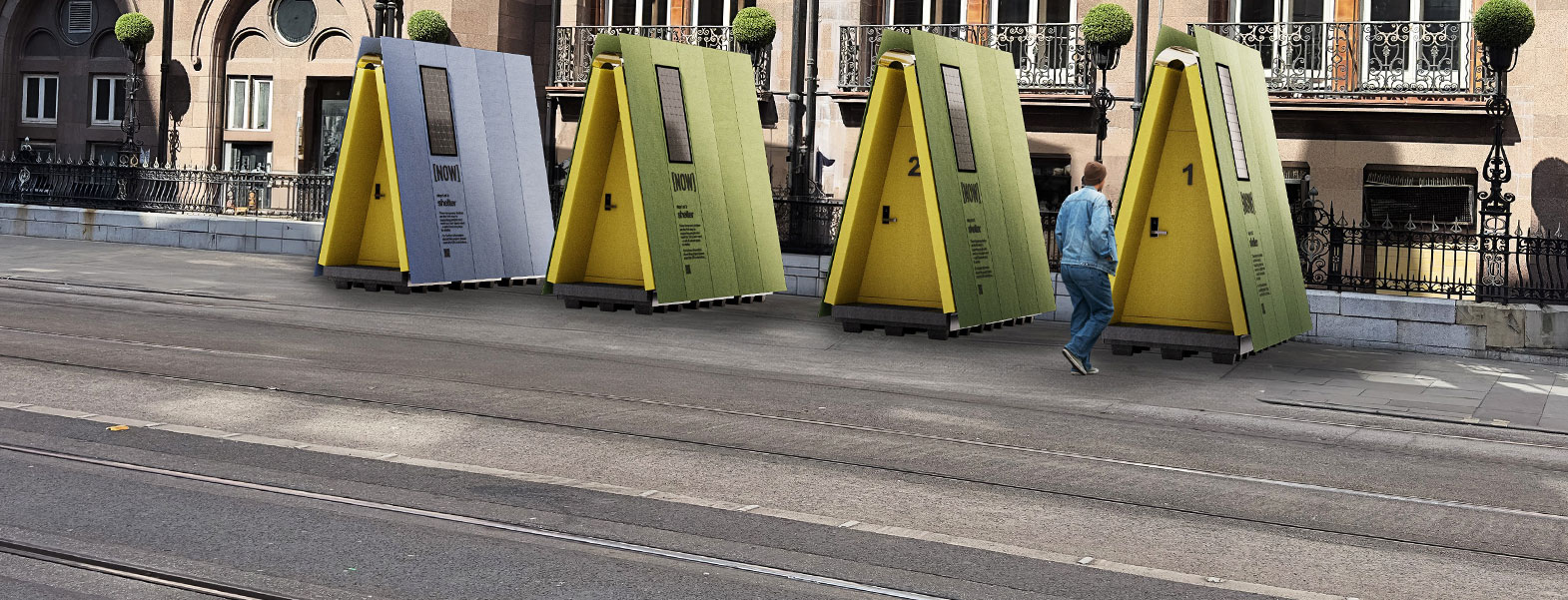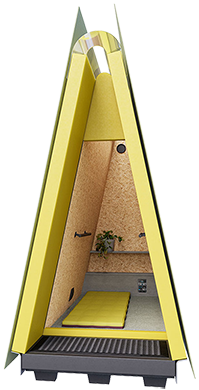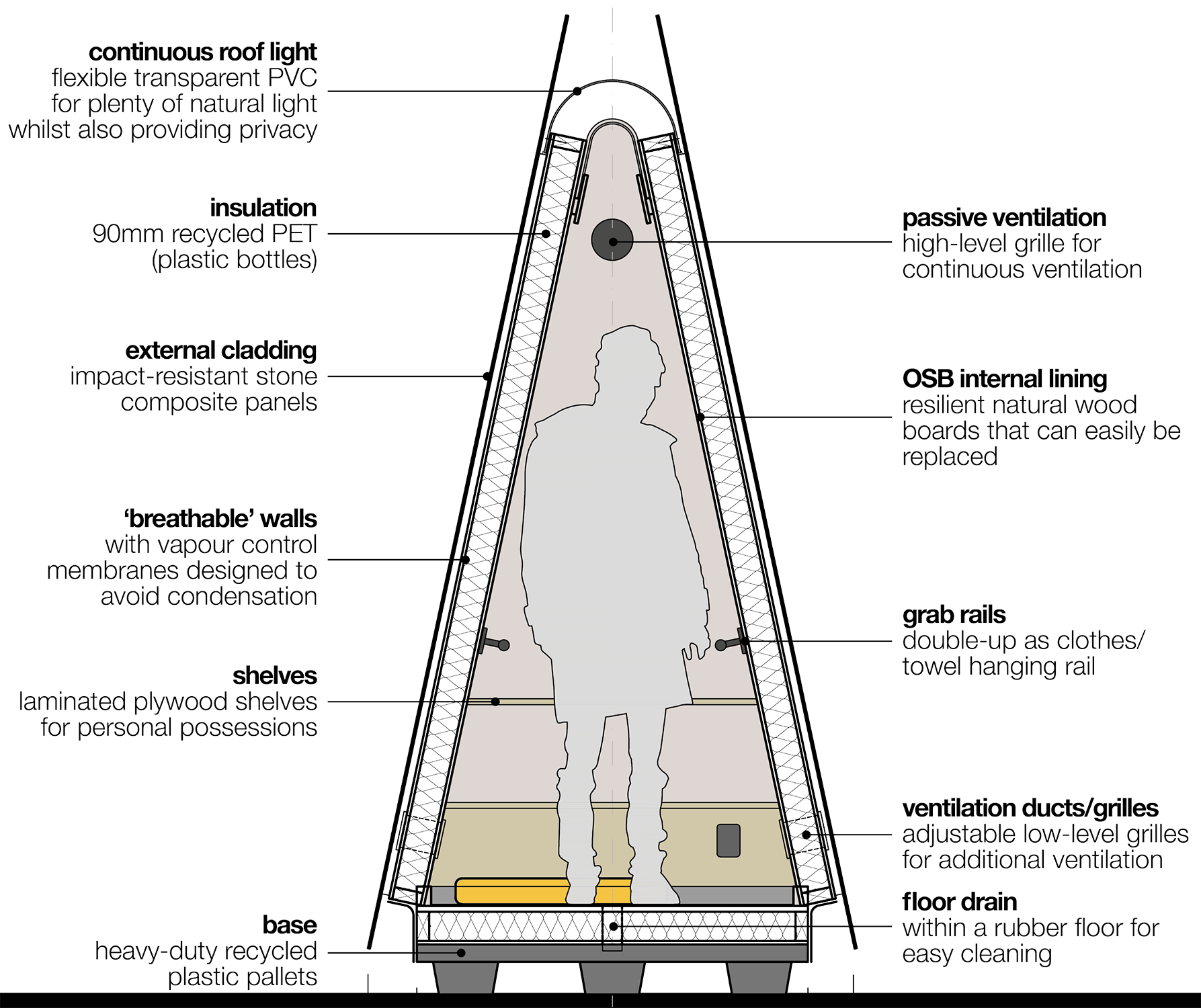We use cookies to ensure that we give you the best experience on our website. By closing this message, you consent to our cookies on this device in accordance with our cookie policy.

The Manchester-based, award-winning modular home manufacturer and Button-fix customer has unveiled an innovative emergency shelter to support people who are homeless or at risk of becoming homeless. They have used our fasteners to make the design practical and adaptable.
Built offsite using low-carbon, breathable materials and manufactured in the city centre, these compact units are designed for rapid deployment by councils, charities, churches, and housing associations. The shelters offer immediate, safe, and respectful refuge—providing a crucial first step between rough sleeping and more permanent accommodation. Designed with real-world insights and dignity in mind, they avoid the institutional feel of hostels while addressing the practical shortcomings of many current pods.
Button-fix connectors are used to mount the internal wall panels. The linings can be removed and easily replaced in future if damaged, or if internal configurations need to be adapted. It’s a small detail that adds real flexibility and reduces whole-life costs—especially important for shelters expected to see heavy use.

“Permanent housing is the long-term goal,” says Wudl’s founder Ric Frankland, “but the reality is that many people are still sleeping in tents, doorways, or unsafe encampments. These shelters offer protection, warmth, and privacy—getting people off the streets and onto a path toward recovery.”
Each unit has been designed to promote wellbeing and reduce strain on emergency services. They help mitigate the risks of exposure, hypothermia, and untreated medical conditions, and may also reduce the likelihood of drug- or alcohol-related harm and mental health crises.
The company plans to build a prototype for lab-based performance testing, followed by real-world winter trials in collaboration with local partners. The aim is to refine the design through lived experience and create a scalable model that councils and charities can trust.

The design incorporates insights from conversations with councils, charities, and people who’ve used or managed individual shelter pods. It addresses common issues like poor ventilation, limited headroom, and the impracticality of in-unit toilets in certain settings.
While the National Institute for Health and Care Excellence (NICE) and the Centre for Homelessness Impact stress the need for integrated, long-term solutions, Wudl believes emergency shelters still have a role to play—particularly when used as a step towards stable, supported housing.
“We support the long-term vision, but also recognise the reality: there are people sleeping rough right now, without access to even the most basic human need—shelter. Our emergency units offer a humane, immediate response.”
Top image courtesy of: Our Studio

These case studies show how Button-fix was used in different ways to create easy to install, adaptable environments for audio professionals.

"Button-fix inspires confidence as a fitter." We listen to cabinet makers who use Type 1 Flush for their made to measure furniture and hear their experience on a recent kitchen fit-out.

The consultancy, with years of experience in recording studio design, build and acoustics, have tried many different fixing methods for acoustic panels and found nothing came close to the efficiency and ease of Button-fix.